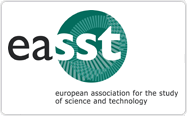Lost Futures
Eritalgia, Sacrifice and Suffering at the New South Wales Coal Frontier
DOI:
https://doi.org/10.23987/sts.120924Abstract
Embedded within large-scale resource extraction projects is a tension between the immobility of the resource and the mobility of the people who inhabit the surface over which the resource is found. The limited ability to negotiate the place of extraction, and the destruction of prior ecologies, can generate significant hardship to local populations and pose particular ethical dilemmas, as in the small village of Wollar located at the New South Wales coal frontier. Here, the supposed ethical imperatives of coal-based power and energy have dismantled and sacrificed communities as the coal mining industry has advanced and intensified its operations. Looking at both social and environmental ecologies, the paper analyses how imagined coal-centred futures, and progress, is phrased (or not phrased) as an ethical and political issue, and the consequences of that coal-based future, psychologically, emotionally, imaginally and cosmologically on those who live near the mines. What once carried a felt ambience of being home has, through technological and political deployment, become a non-place of transience, anonymity, and change. In this unbalanced political conflict, a natural environment and lived ecology are subject to developmentalist and technological ecologies in ethical-political dispute with a diminishing sense of home, and produce suffering because of unequal power relations which derive from the success of the destructive technologies. Searching for a language to capture the sense of sacrifice and suffering that happens in the shadow of large-scale mining, I propose a new concept: ‘eritalgia’. Eritalgia expands the existing duad of nostalgia and solastalgia, capturing the sense of lost future self in place, emphasising the role of power and discursive hegemony in shaping experiences of and well-being in place.
Downloads
Published
Versions
- 2024-05-15 (2)
- 2024-02-27 (1)
Issue
Section
License
Copyright (c) 2024 Hedda Askland

This work is licensed under a Creative Commons Attribution 4.0 International License.





